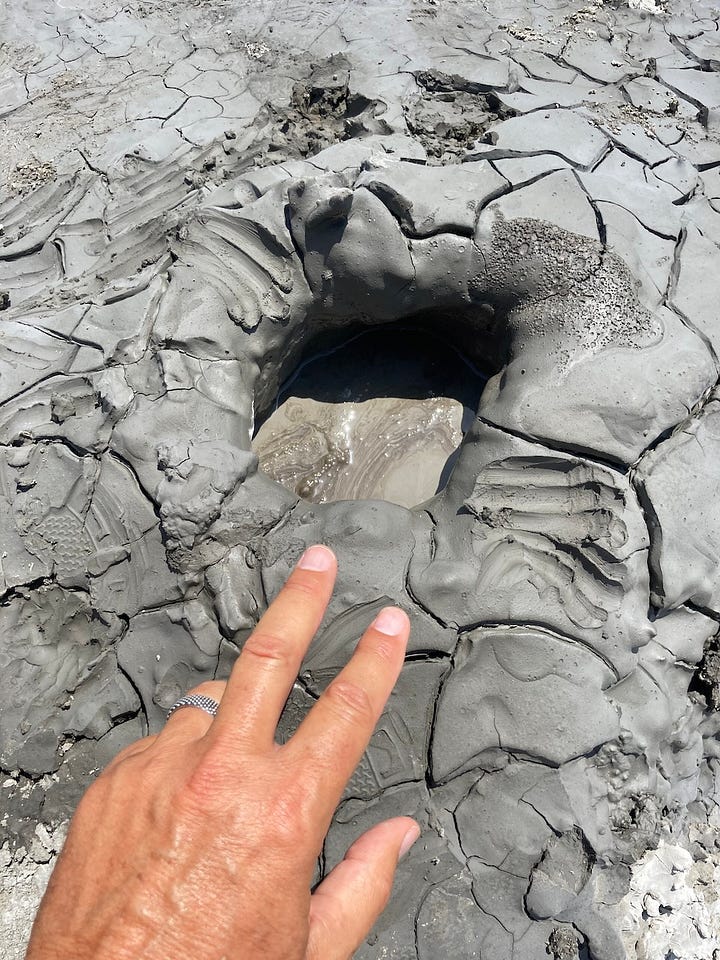Hurricanes, Scattered Leaves, and Other Risky Stories from Marriage
How do you move forward when one says "yes" and the other says "no?"
Dear Stormtroopers, Stormtroopettes, and Squalls of all types:
I goofed. I mentioned in a previous newsletter that I would share an AFLL1 story from my marriage to Fabi. Then, a few days ago, you received a letter I wrote about Egypt. So, where is the juicy story you promised, Brant?
Okay, my mistake. In my naturally befuddled state (Fabi calls me Mister Magoo), I failed to push the right buttons, and that Egypt newsletter, which should have gone out weeks ago, missed its deadline. “Better late than never,” I said, so I sent it betwixt and between.
Clear as mud?


My Plan Gone Awry
I was planning to write a long and “oh so clever” letter about risk, how each of us has a different measure of it, and how hard it is to agree on what’s truly risky and what isn’t.
I planned to quote from M. Scott Peck’s book “The Way Less Traveled,” about how men and women have different tolerances for risk, how both are needed, and why success involves men and women working together as a team.2
I planned to dig up the New York Times article that said liberals tended to overestimate risks and conservatives tended to underestimate them.
Now, that plan is out the window. Fabi just announced she is whisking me away tomorrow for my 69th birthday celebration, so I have only a few minutes to dash out this newsletter.
Anyway, the good news is, you get a “twofer” — TWO risky stories from my marriages for the price of ONE!
Story #1
This one is easy to tell — just watch this video I made a few weeks ago while Fabi and I were visiting Greenland.
Story #2
This second story required digging up a 30-year-old memory involving my first wife, the mother of our children. She and I had very different approaches to parenting, as illustrated by one crisp autumn day when our daughters were about five and seven.
The house was hot and stuffy, so I opened up the front door for a breath of fresh air, allowing the girls to run out of the house in their bare feet. They proceeded to barrel around the front yard, kicking up leaves and just having a ball. I leaned on the doorsill and watched them in amusement.
Then my wife showed up.
“Oh my god! How could you let them out like this?!?” she said, her voice rising. “They’ll catch their deaths of a cold.” She then proceeded to chase the girls around the yard with jackets and little shoes in hand.
The children’s mother was clearly displeased with me as a parental supervisor. It didn’t help matters when I used the opportunity to remind my wife that children catch colds from exposure to viruses, not from exposure to the elements, and that the girls would come in when they got cold. After all, I was standing at the open door, ready to welcome them whenever they were ready.
It’s easy to see the source of the conflict. The mother’s assessment of the risk from exposure was very different than mine, and my little lecture about the science of viral transmission fell on her deaf ears.
To this day, I naturally think I was “right” and she was “wrong,” but somewhere outside that field Rumi talks about, we were both wrong.
“Out beyond ideas of wrongdoing and rightdoing, there is a field. I'll meet you there.”
Rumi
The kids grew up without any bouts of pneumonia that I can recall, but the first wife and I eventually went our different ways. No small surprise. We were never able to find a balanced compromise in the power struggle over childraising and other issues. We never found Rumi’s field.
It’s hard to keep a cart moving forward when the two horses pulling it want to go in different directions. Sometimes it takes a cart driver with a whip to get them to “straighten up and fly right,” as my dear old mom used to say.
Who is 100% Right?
No one is. No matter how intelligent a person is, no one is precisely correct 100% of the time, which is why my engineering professors deducted points if I failed to include a “margin of error” in my solutions, even when my answer was derived with flawless math and precise measurements.
In other words, every solution to a problem has some degree of uncertainty or “wrongness” to it. This concept is clearly seen when meteorologists predict the path of a hurricane.
Will Hurricane Milton hit north or south Florida? Even the experts were not sure. That degree of uncertainty (the red band) increased the farther their prediction extended into the future. One must always assign some margin of error to one’s forecasts.
“There’s no conversation when everybody is absolutely certain of the righteousness of their argument. That’s a platitude, but it’s still true.”
Anthony Bourdain
Divided We Capsize
I can’t help but see parallels between my two stories and the political debates that rile the United States. We are dealing with complex problems, among them how to manage future pandemics, the likelihood of fascism, the erosion of freedom, when to wage war, who needs protection, who needs to stand on their own, and how to mitigate climate change.
Some overestimate the risks. Others underestimate them. The mainstream media rarely mentions “margin of error” anymore. Everything is presented with such certainty.
But here’s something that is almost always true: Anyone who claims 100% certainty is wrong. No one can predict the future. Most of us are only guessing, and some folks are using uncertainty to stoke fear and divide the people. We must not allow this if we are to prevent our fragile Republic from capsizing.

So, whenever a pundit or politician says “thus and so” is going to happen, try to remember the degree of uncertainty and silently apply it. Or, if you are so inclined, demand they provide one. If they fail to, you can always hit them up with a zinger from that fount of wisdom, “The Great Labowski.”
Oh, and don’t go swimming in ice-cold water. You could die of a heart attack!
That’s a Wrap!
Thanks for tagging along. Fabi and I are off to Monte Isola, a town in the province of Brescia, Italy. I’ll be back…with pictures!
Until then…
Another Fucking Life Lesson (AFLL)
You can find Peck’s account in Chapter 21 of my book “Blue Skyways.”












And you could have been transported through both the courage and audacity of the momentary freezing water to a higher state of being, meaning feeling even more alive…missing that opportunity versus an hour (or 4 since she is italian) of disdain was the risk in…well….my, opinion, man!
We compromise and let things ride. Living life in the moment and watching the drama outside of it makes intriguing entertainment. Don't worry be happy! Enjoy another trip with Fabi and report back.